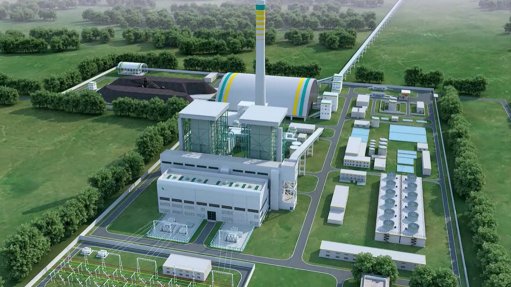
SUPPLY BOOST The Ncondezi project will supply 300 MW to the Mozambican grid, specifically into the northern grid, where power supply is unreliable
Emerging Mozambican power development company Ncondezi Energy says the positive preliminary results from updated proposals from the engineering, procurement and construction (EPC), as well as operations and maintenance (O&M) contracts, for its integrated power and coal mine project indicate potential for the presentation of a more competitive power tariff.
Ncondezi further expects to reach an agreement with potential partners on the appropriate tariff envelope and to send the proposal to national power utility Electricidade de Moçambique (EDM) and the Ministry of Mineral Resources and Energy (MIREME) for approval.
This follows the receipt of the updated EPC and O&M proposals from the company’s partners for an in-house review in April. The proposals form part of the integrated financial model.
“The partners, construction and engineering company China Machinery Engineering Corporation and industrial company General Electric South Africa, are acting as a consortium. They were expected to complete the financial model review by the end of May,” says Ncondezi Energy chief development officer Hanno Pengilly.
The company’s main priority currently is to submit the financial model to EDM and MIREME to seek in-principle support for a new power tariff envelope. This will form the commercial basis on which the project financing process can commence, following which construction can start.
Should this be successful, Ncondezi believes it will be well positioned to close out the joint development agreement process with its partners and progress the project to financial close.
Power Project
Ncondezi Energy’s project is a “large thermal coal resource strategically situated in Tete, capable of supporting a long-life, openpit mining and power plant operation”, the company states.
The project consists of two 150 MW coal-fired boiler units, an openpit coal mine and a 2-km-long conveyor that is connected to the power plant, together with common infrastructure, such as dams, dumps, electrical reticulation and villages, as well as a 92 km transmission line connecting to the country’s northern power grid.
The coal mine has a defined Joint Ore Reserves Committee-compliant coal resource of 4.7-billion tonnes and a measured resource of 120-million mineable tonnes.
Pengilly explains that the project will supply 300 MW to the Mozambican grid, specifically into the northern grid, where power supply is unreliable and heavily dependent on hydro-electricity that has come under threat, as a result of regional drought.
“The supply of electricity to this region is essential to provide the necessary foundations for new business start-ups, particularly in the mining and agriculture sectors where significant opportunity is being constrained, owing to the expensive off-grid power solutions and unreliable grid power,” he says.
Pengilly points out that the Mozambique government is committed to citizens having universal access to electricity by 2030, for which a significant increase in power supply is required. Coal-fired energy is expected to play a significant role in the country’s energy mix.
Mozambique also plays a significant role in the export of power to neighbouring countries, such as South Africa and Zimbabwe, with up to half of EDM’s revenue coming from exports, he adds. Therefore, government’s strategy to continue growing as a regional supplier of power will further assist in meeting the demand for power generation in Mozambique.
Pengilly enthuses that the project will contribute to local job creation and skills development, as well as provide reliable and affordable electricity supply to businesses and homes in Mozambique. He further notes that this project helps strengthen the Mozambique mining industry in its development, despite setbacks that may have been caused by the country’s 2016 debt crisis, with coal exports and the development of graphite mines the most prominent in this regard.
The Ncondezi coal mine differs from other operators in the region in that its coal resource is dedicated to the generation of power in Mozambique, providing several benefits for the power plant and, consequently, the country, through a lower proposed tariff and security of fuel supply.
“We are strongly of the view that we have the most developed coal-fired energy project in the country and have identified world-class partners to deliver the project,” concludes Pengilly.